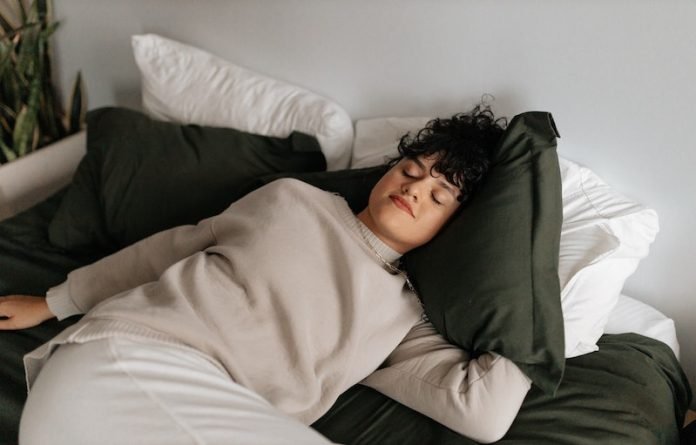
Sleep is crucial for maintaining physical and mental health, and inadequate sleep over time can impact all aspects of life with serious implications for long-term health, relationships, and cognitive abilities such as learning, and healing.
In a study from the University of Arizona, scientists found that people with post-traumatic stress disorder (PTSD) experienced better sleep, a reduction in the severity of PTSD symptoms and more effective treatments after exposure to blue light therapy.
The influence of sleep disruption on PTSD symptom severity is well established.
Those who seek treatment to allay their PTSD symptoms often face a vicious cycle where poor sleep interferes with the effectiveness of treatments, negating any lessening of symptoms, which in turn contributes to sleep disruptions.
To reduce and eliminate the emotional impact of traumatic memories, the patient needs quality sleep to integrate healing mechanisms achieved through cognitive or exposure therapy treatments.
In the study, researchers conducted a comprehensive assessment of daily morning blue-wavelength light exposure on individuals with clinically significant levels of PTSD.
Study participants committed to 30 minutes of morning light exposure daily for six weeks, with half of the participants using blue-wavelength light and half using amber light.
The researchers examined the neurobiological, autonomic and behavioral outcome changes during the study.
The 43 participants who received blue light therapy not only demonstrated significant improvements in the severity of their PTSD symptoms but also reported improvements in sleep and showed increased retention of fear extinction memories.
In comparison, the 39 participants who received amber light did not show the same retention of the extinction memories, but rather showed a return of the original fear memories.
The team says the research is exciting and unique because it points to an easy-to-use method for helping those with PTSD to retain the benefits of therapy long after the treatment ends.
Morning blue light treatment improves sleep complaints, symptom severity, and retention of fear extinction memory in PTSD.
If you care about sleep, please read studies about herb that could help you sleep well at night, and these drugs could lower severity of sleep apnea by one third.
For more information about sleep, please see recent studies about drug that can treat sleep loss and insomnia, and results showing how to deal with “COVID-somnia” and sleep well at night.
The study was conducted by William “Scott” Killgore et al and published in Frontiers in Behavioral Neuroscience.
Copyright © 2022 Knowridge Science Report. All rights reserved.



